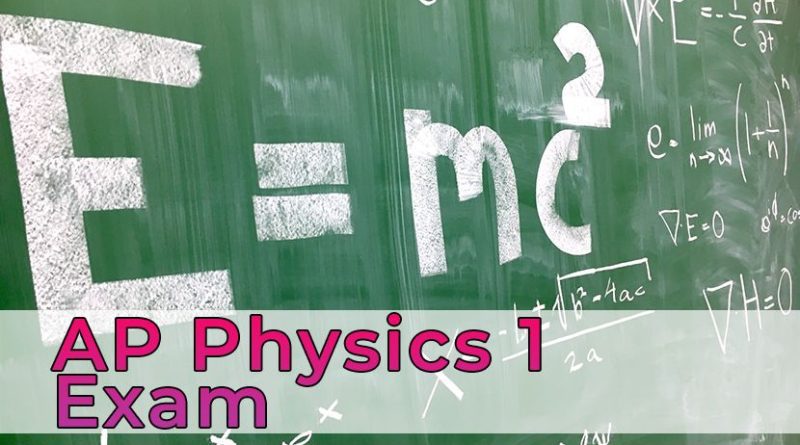Is AP Physics Really Hard? A Complete Guide for High School Students
AP Physics is one of the most fascinating yet challenging subjects offered at the high school level. As a gateway to fields like engineering, technology, data science, and artificial intelligence careers, Physics attracts thousands of ambitious students each year. But at the same time, it carries a reputation for being intimidating.
Students often ask:
- Is AP Physics really that hard?
- Will it affect my GPA and college admission chances?
- How should I prepare for such a demanding course?
This guide takes a closer look at these questions using reliable data, score statistics, and expert insights, so you’ll know exactly what to expect before enrolling. Also do read about AP syllabus and courses here.
Should You Take AP Physics?
Before jumping into AP Physics, it’s important to evaluate whether the course matches your academic skills and career goals. Unlike some AP classes that rely mostly on memorization, physics demands analytical thinking, strong math skills, and problem-solving abilities.
Ask yourself:
- Do I enjoy solving real-world problems using logic and formulas?
- Am I confident in algebra (and possibly calculus, for Physics C)?
- Can I devote consistent study hours each week to keep up with the pace?
- Is physics required or recommended for the college major I want to pursue?
- Will this course strengthen my college application and future career path?
If you can confidently say yes to most of these, Physics course may be a perfect fit. If not, you might want to consider other AP science courses such as AP Biology or AP Chemistry.
Is AP Physics Really Hard?
A lot of students hesitate because of the myths surrounding AP Physics. Some think only “genius-level” math students can survive, while others assume it’s not worth the stress. The truth lies somewhere in between.
Let’s look at actual performance data:
AP Physics 1 Exam Statistics (2024)
- Overall pass rate: 47.3% (lower than the general AP average of 60–75%)
- Score breakdown (2025):
- 5: 18%
- 4: 25%
- 3: 23%
- 2: 14%
- 1: 20%
Why Is AP Physics 1 Difficult?
- Reasoning & Argumentation: The exam emphasizes conceptual reasoning and experimental design, not just memorizing formulas.
- Math Foundation: Since it’s algebra-based, students with stronger math skills tend to perform better.
- Wide Student Base: Physics 1 is often the first exposure to advanced physics, so the mix of backgrounds affects overall scores.
AP Physics 2 and AP Physics C – Easier or Harder?
- AP Physics 2: Pass rate around 69.8%, much higher than Physics 1.
- AP Physics C (Calculus-based): Both Mechanics and Electricity & Magnetism have higher success rates, with roughly 20–23% of students scoring a perfect 5. These courses tend to attract students who are already strong in math and science.
What the Numbers Really Mean
Two key takeaways from the data:
- Physics 1 is foundational — It covers core principles like motion, forces, energy, and waves, but demands strong logical reasoning. Because it’s an entry point for many students, the pass rate appears lower.
- Advanced Physics exams see higher success — Students who continue to AP Physics 2 or AP Physics C are usually more prepared, which raises the average performance.
Is the Content Itself Hard?
Yes, AP Physics can be demanding, but not impossible. The challenge lies in two areas:
- Mathematics: Expect heavy use of algebra, trigonometry, and in some cases calculus. Derivations and quantitative problem-solving are unavoidable.
- Conceptual Understanding: Beyond formulas, you need to understand the why behind physical laws—Newton’s laws, energy conservation, momentum, electricity, magnetism, and more.
In short, AP Physics requires both curiosity and analytical thinking. Students who approach it with consistent effort and problem-solving practice often succeed, even if they’re not “math prodigies.”
Best Study Tips for AP Physics Success
If you want to do well in AP Physics 1, AP Physics 2, or AP Physics C, preparation is key. Here are proven strategies to help you succeed:
1. Master the Math First
Physics is built on math. Strengthen your algebra, trigonometry, and calculus (for Physics C) before diving into advanced topics. A solid math foundation reduces confusion when applying formulas.
2. Focus on Concepts, Not Just Formulas
Instead of memorizing equations, work on understanding the logic behind physical laws. Ask yourself: Why does this formula work? What real-world situation does it explain?
3. Practice with Past AP Exam Questions
College Board releases free-response questions (FRQs) and multiple-choice samples every year. Practicing these helps you get comfortable with the exam’s style and level of reasoning required.
4. Use Diagrams and Visuals
Physics problems become much easier when you draw free-body diagrams, graphs, or sketches. Visuals help break down complex motion, forces, and energy problems.
5. Don’t Ignore Labs
Hands-on experiments are a major part of this course. Pay attention to lab work—it builds your scientific reasoning, data analysis, and argumentation skills, all of which are tested on the exam.
6. Study in Small, Consistent Sessions
Instead of cramming, review physics concepts in short, regular study sessions. Spaced repetition helps you retain equations, definitions, and problem-solving strategies better.
7. Learn to Break Down Problems
Most Physics questions are multi-step. Train yourself to analyze what is given, what is asked, and which formula applies, instead of jumping straight to the final answer.
8. Use Multiple Resources
Textbooks are useful, but don’t stop there. Explore online physics tutorials, prep books, and interactive simulations (like PhET) to strengthen understanding.
9. Form a Study Group
Discussing tough problems with classmates can expose you to different problem-solving methods. Teaching someone else a concept is one of the fastest ways to master it yourself.
10. Stay Consistent and Positive
AP Physics is challenging, but consistency beats talent. Stay disciplined, ask for help when needed, and remember, colleges value persistence and resilience as much as grades.
Frequently Asked Questions About AP Physics
Yes, AP Physics is widely considered one of the toughest AP courses. It requires strong mathematical skills, problem-solving abilities, and conceptual understanding. While challenging, students who are consistent with practice and have a solid math foundation often succeed.
In 2024, the AP Physics 1 pass rate was 47.3%, much lower than the average AP exam pass rate of 60–75%. AP Physics 2 had a higher pass rate of 69.8%, while AP Physics C exams (Mechanics and Electricity & Magnetism) had some of the highest success rates, with around 20–23% of students earning a 5.
AP Psychology, AP Environmental Science, and AP Human Geography are often ranked among the easiest AP courses. However, the “easiest” class really depends on your personal strengths. If you’re comfortable with math and logic, AP Physics might feel easier than courses that require heavy memorization.
Many students struggle with electricity and magnetism, rotational motion, and wave interference. These topics involve abstract concepts and multi-step math problems, which require practice and strong visualization skills.
It depends on your strengths. AP Physics is math-heavy and concept-based, while AP Biology requires extensive memorization and detailed understanding of biological processes. Students who excel in math often find physics more manageable, while those better at memorization may prefer biology.
Courses such as AP Chemistry, AP Physics C (Calculus-based), and AP Calculus BC are often considered the hardest AP classes due to their advanced content and rigorous exams. AP Physics 1 also ranks among the more difficult courses because of its low pass rate.
Yes, the course looks impressive on college applications, boosts your GPA, and prepares you for STEM majors such as engineering, computer science, data science, and pre-med. Colleges value students who take and perform well in rigorous math and science courses.
It’s highly recommended to take an introductory high school physics course first. AP Physics assumes you understand the basics of motion, forces, and energy. Without this background, the pace and difficulty can feel overwhelming.
On average, students should spend 6–10 hours per week studying AP Physics. This includes class time, homework, problem-solving practice, and reviewing notes. During exam season, this may increase to 12–15 hours per week.
AP Physics 1 & 2: Multiple-choice and free-response questions, with a strong focus on reasoning and lab-based problem solving.
AP Physics C (Mechanics & E/M): Multiple-choice and free-response, but with calculus-based questions. Exams test your ability to apply formulas, solve quantitative problems, and analyze data.
Yes. Physics includes hands-on and inquiry-based labs. Lab experiments strengthen your understanding of experimental design, error analysis, and scientific reasoning, all of which are tested on the exam.
The best way to improve is through consistent problem-solving practice, drawing diagrams, reviewing past FRQs, and mastering core math concepts. Study groups and online simulations (like PhET) can also help you visualize and understand tough concepts.
Most colleges grant credit for a score of 4 or 5, though some may accept a 3 depending on the program. Engineering and science-heavy universities often require a 4 or higher. Always check the AP credit policy of your target colleges.




